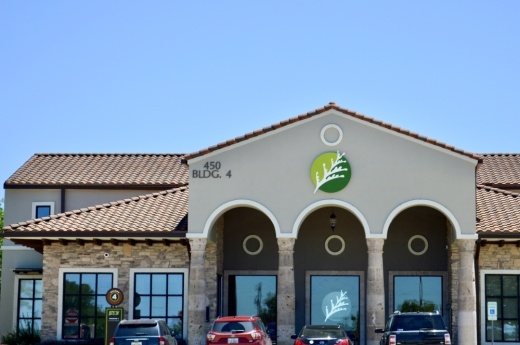The $158.2 million operating budget includes funding for day-to-day city functions, capital improvement projects, community support funding and other city expenses.
Kevin Klosterboer, the city’s assistant director of finance, said the FY 2021-22 budget will increase resources and staffing in police, fire and emergency management; decrease the property tax rate; ensure sound infrastructure; increase the street maintenance program; increase mobility opportunities; focus on economic development projects; provide resources for recreational assets; and recruit a skilled workforce.
City budget
The $158.2 million operating budget includes three main funds: a $66.47 million general fund, a $34.3 million utility fund and $57.4 million in restricted funds. These restricted funds include funding for the economic development (Type A) board, the community development (Type B) board, the tourism board, and other city boards or departments.
The general fund pays for day-to-day city operations funded through property taxes, sales taxes and user fees. The general fund’s revenues increased about $5.5 million from fiscal year 2020-21.
The general fund budget includes eight more public safety full-time equivalent employees, including two police officers, one detective, one victim services advocate, three fire lieutenants and one assistant emergency management coordinator. Ten more full-time equivalent employees will be added across other city departments.
One-time general fund budget additions include a city website rebuild, a mobility master plan, consulting services, a pavement condition survey update and bond task force services.
Council members also discussed the community support fund during its Sept. 9 meeting. The city budgets $1 per capita for the fund, which supports local organizations providing community services.
The $84,000 fund in the FY 2021-22 budget will support the Court Appointed Special Advocates of Williamson County, Christian Resource Center, Drive a Senior Northwest/Faith in Action, Hope Alliance, Literacy Council of Williamson County, Sacred Heart Community Clinic, Samaritan Health Ministries, Opportunities for Williamson and Burnet Counties’ Meals on Wheels program, and $2,500 in unallocated funds.
Capital projects
The FY 2021-22 budget includes $99 million for capital improvement projects. These include:
- $10.7 million in facilities projects such as the new library, city hall building reconfiguration, city hall event and holiday lighting, and Treasure of the Hills Senior Center repairs
- $5.6 million in recreation and culture projects such as the north Brushy Creek Trail, park site furnishing replacements, the regional trail connection and bridge match, and the King Log Cabin relocation
- $900,000 in transportation projects such as sidewalk gap closures, and a traffic signal at Vista Ridge Boulevard and Colonial Parkway
- $80.1 million in water projects including the city’s share of the Brushy Creek Regional Utility Authority’s Phase 1D and Phase 2 projects
- $377,000 in wastewater rehabilitation and relocation projects
Cedar Park will decrease its tax rate. However, as a result of increasing home values in the area, the average Cedar Park homeowner will pay more in city property taxes with the new rate.
City Council approved a $0.432 per $100 valuation property tax rate Sept. 9. This includes a $0.234341 maintenance and operations rate, and a $0.197659 interest and sinking rate. The approved rate is lower than FY 2020-21’s rate of $0.446977 per $100 valuation but is higher than the no-new-revenue rate of $0.405941. The no-new-revenue rate would generate the same amount of tax revenue if applied to the previous year’s property values.
For the average Cedar Park homeowner, city property taxes will increase by $115 from the last fiscal year, which is a 7.5% increase.
Property values in Cedar Park grew 12.6% from FY 2020-21. The average home value in Cedar Park is $379,408, according to the city. The FY 2020-21 average home value was $341,039.





